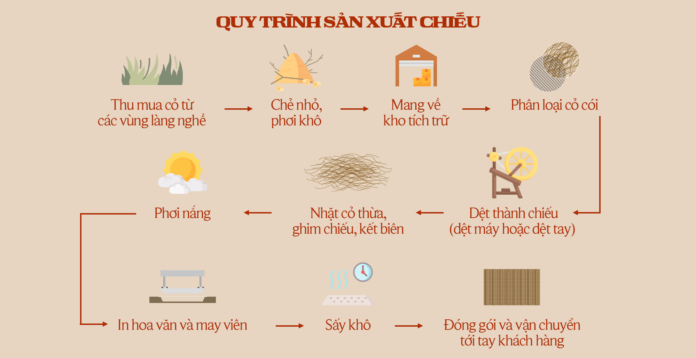“The Thai Binh folk song, ‘Em det doi chieu hoa,’ resonates with the humble image of straw mats, a deep-rooted part of the region’s cultural heritage. In the village of Quynh Phu, a 400-year-old traditional craft of mat weaving continues to thrive, with the three Minh Tuan brothers of ‘Than Vui Straw Mats’ at its heart. Their journey of bringing straw mats to e-commerce platforms, however, was filled with drama, including initial resistance from the village elders who questioned the feasibility of selling large mats online and the challenges of video production due to the camera-shy artisans.
Defying these obstacles, the brothers bravely ventured into the world of TikTok Shop, successfully fulfilling tens of thousands of orders and even providing a 14-meter-long ceremonial mat to Den Hung, a symbol of national culture. No longer at the mercy of traders, Than Vui straw mats now bridge the gap between artisans and consumers, delivering authentic values to every household. Their story is a testament to both cultural preservation and the resilience of traditional crafts embracing digital transformation.
Born and raised in the mat-weaving village of Quynh Phu, the three brothers – Nguyen Van Tuan, Nguyen Van Quy, and Nguyen Van Ngoc (all born in 1993) – have chosen to return to their roots and carry on the family legacy. Despite having stable jobs in the city, their love for the village craft and their desire to preserve and promote its value brought them back home to continue the family business.
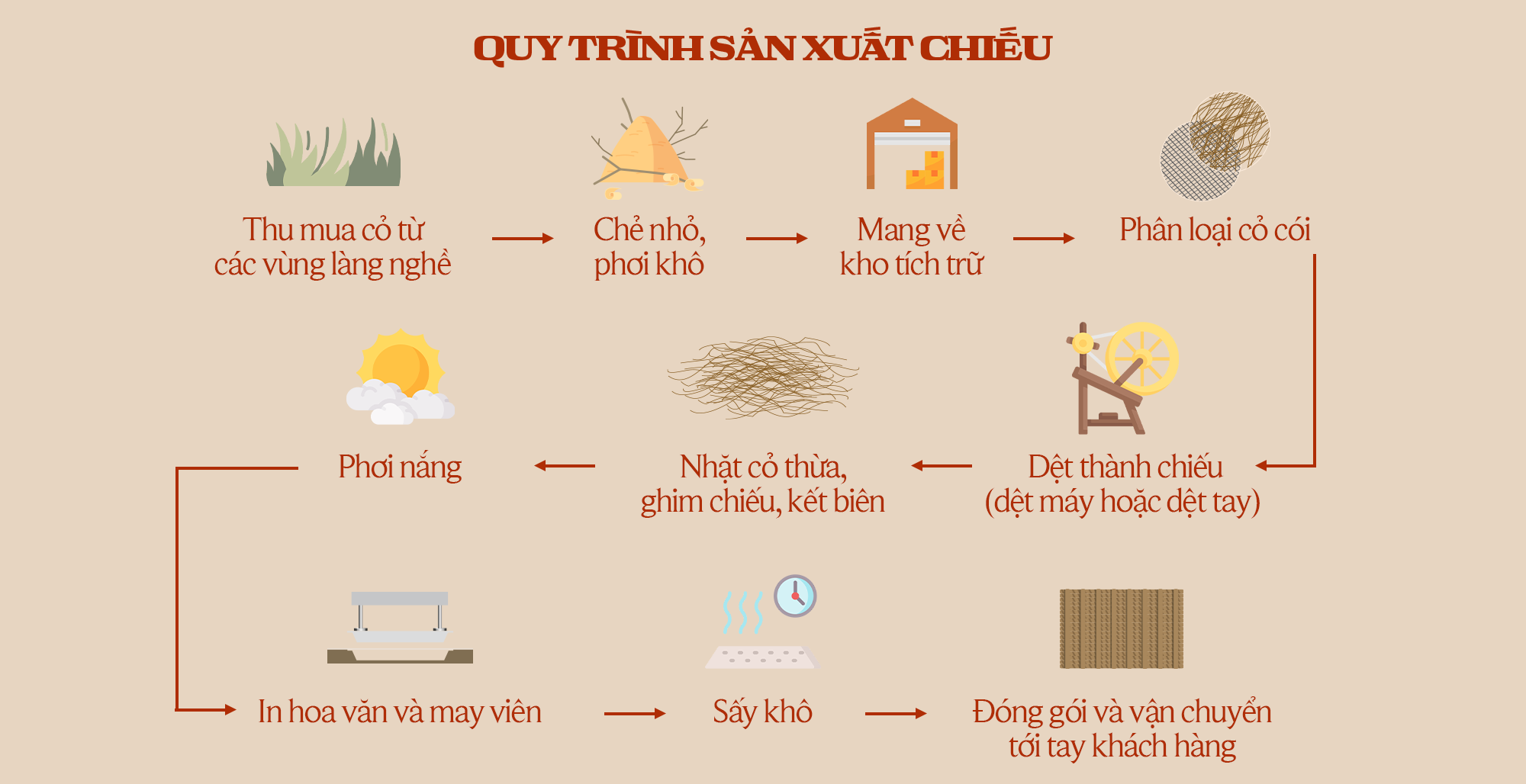
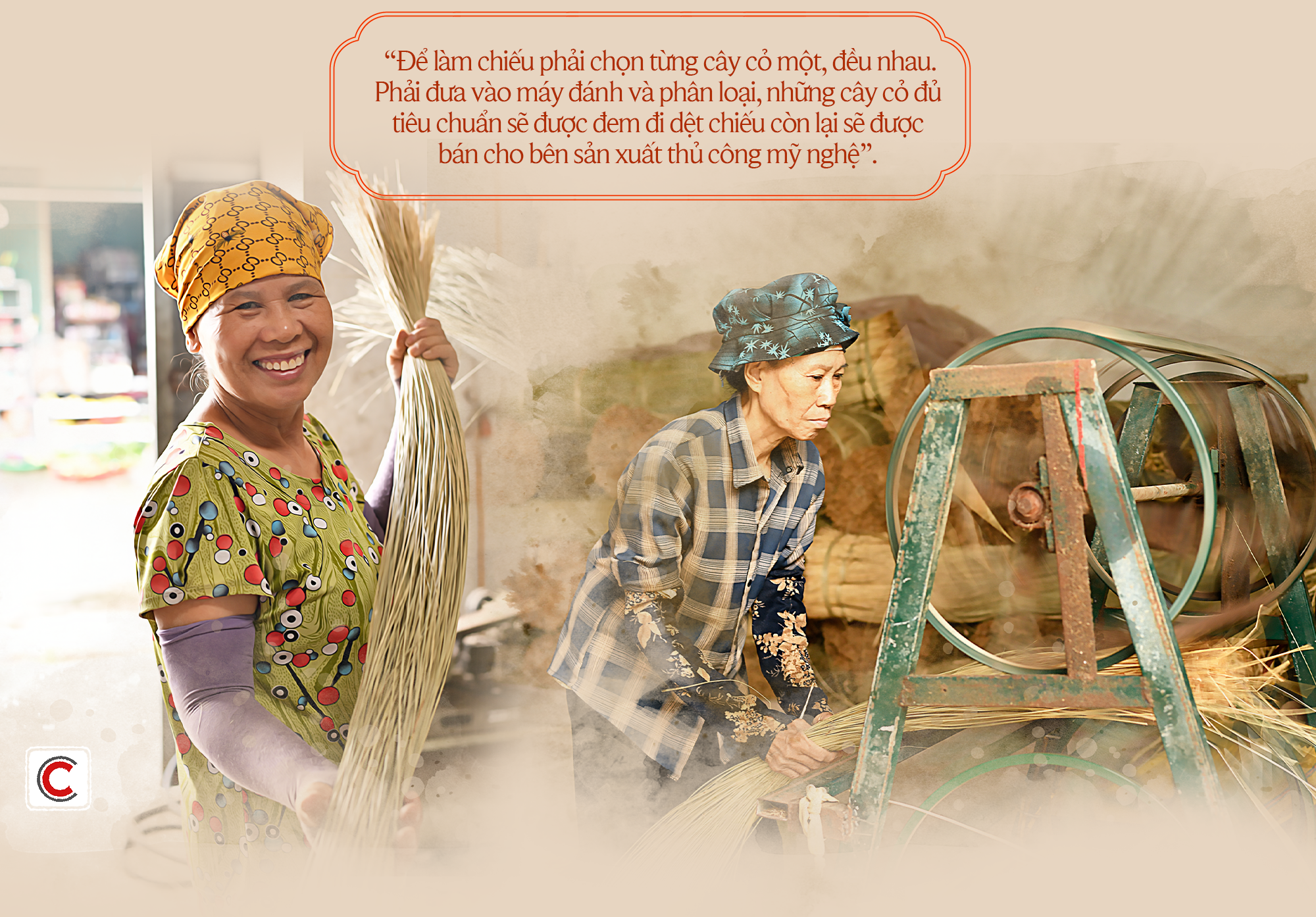
Can you share the story behind the founding of “Than Vui Straw Mats”?
The family’s mat-weaving tradition began with our parents, who have been in the business for decades. “Than Vui” is their name, reflecting their longstanding reputation and deep roots in the region. In the past, our parents sold mats through distributors without any branding or trademarks. The mats were anonymous, purely handmade, and struggled to compete in the market. Buyers would receive the mats without knowing their origin or the artisans behind them.
When I joined the family business, I realized that if we continued in this way, our traditional craft would eventually fade away. I insisted that we needed to step out of the shadows and proudly claim ownership of our products. Initially, I had no intention of pursuing this profession. We had explored other career paths, but our love for the village craft and our cultural heritage brought us back. It was a calling and a responsibility to our family.
When I first started, I discovered that producing high-quality mats was not enough; we needed a brand. In the past, mats were sold without labels or names, purely as handmade items. Shop owners often refused to acknowledge or display the names of the artisans. However, as the quality of our mats improved, customers began to demand branding. That’s when I started affixing the “Than Vui” label to our mats and building our unique brand.
In recent years, from 2020 to 2025, I took the bold step of bringing our mats to e-commerce platforms like Shopee and TikTok. Despite initial challenges, the “Than Vui Straw Mats” brand gradually gained recognition. My goal was not just to sell mats but to preserve the cultural value inherent in this traditional craft.
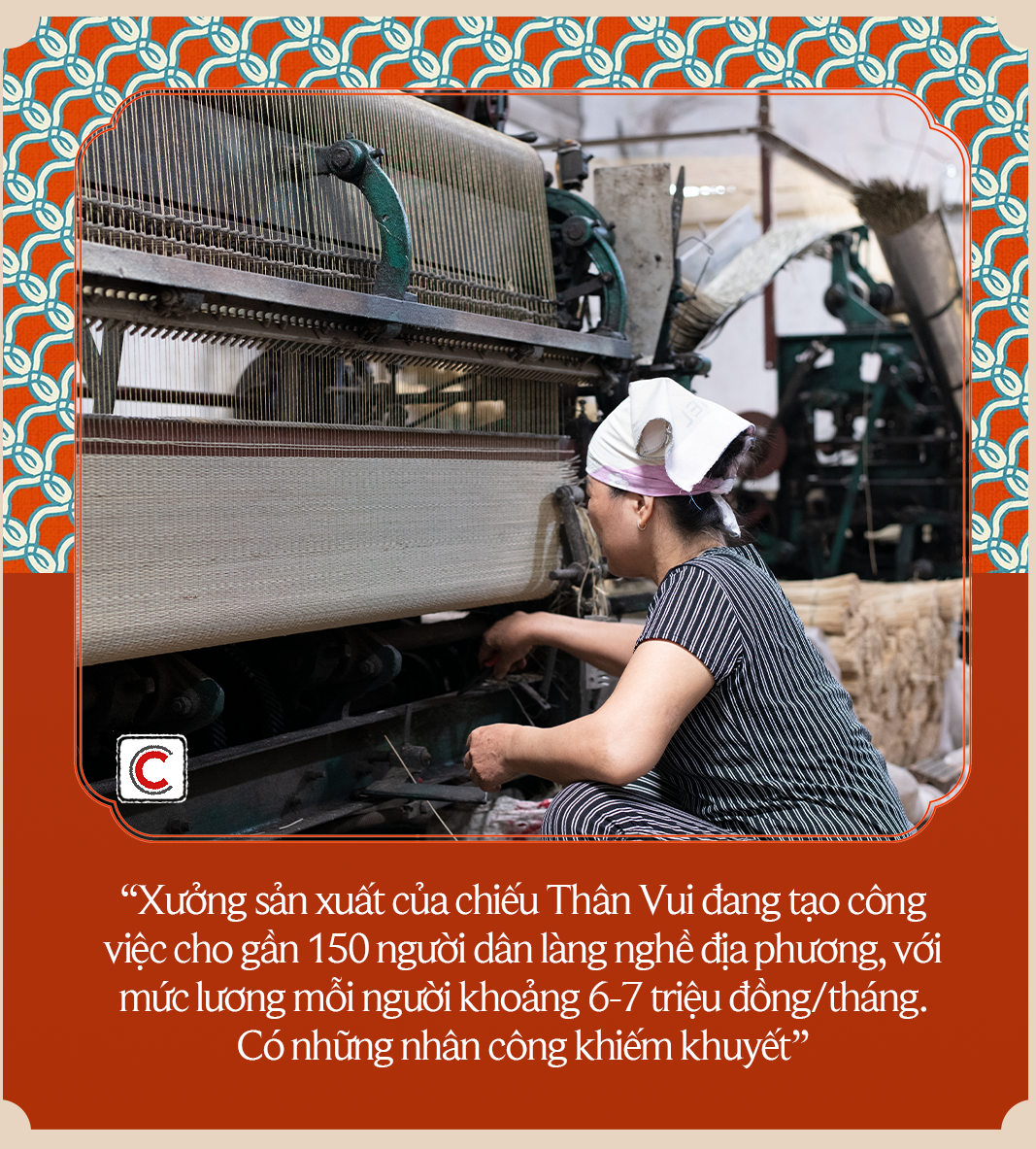
What were the biggest challenges you faced when bringing your straw mat products to e-commerce platforms?
The primary challenge we faced when entering the e-commerce space was the lack of brand recognition for our products. In the past, our mats were anonymous, sold purely as handmade items without any labels or names. When approaching shops and distributors, they often rejected us due to the absence of a brand. This made me realize that building a brand was essential for maintaining the village’s standing in the industry.
Another significant challenge was competing with cheap imported products, particularly from China. These low-cost alternatives compromised on quality, yet they appealed to price-conscious consumers, especially the younger generation. Additionally, there was a perception that straw mats were prone to mold and were inconvenient, further discouraging potential buyers.
Selling on platforms like Shopee and TikTok presented its own set of difficulties, requiring us to develop promotional skills. Initially, I lacked experience in video production and content creation. The platform fees, ranging from 10-20%, also necessitated careful pricing calculations to ensure profitability while remaining competitive. Back in 2020, when I first started selling on Shopee, logistics were less developed, resulting in higher shipping costs that further complicated our pricing strategies.
Lastly, consumer habits posed a barrier. Younger individuals favored bamboo or air-conditioned mats over straw mats. Older generations were accustomed to purchasing from physical markets and were reluctant to venture into online shopping. Convincing them to trust and purchase straw mats online was a gradual process. Middle-aged individuals, who are typically the primary users of straw mats, were less likely to engage with online shopping platforms and social media, making them a challenging demographic to reach.
Furthermore, building trust with customers on e-commerce platforms takes time. It’s not uncommon for potential buyers to discover our products through promotional videos but make a purchase weeks, months, or even longer afterward. This delay allows them to remember our brand and consider us when they are ready to buy straw mats.
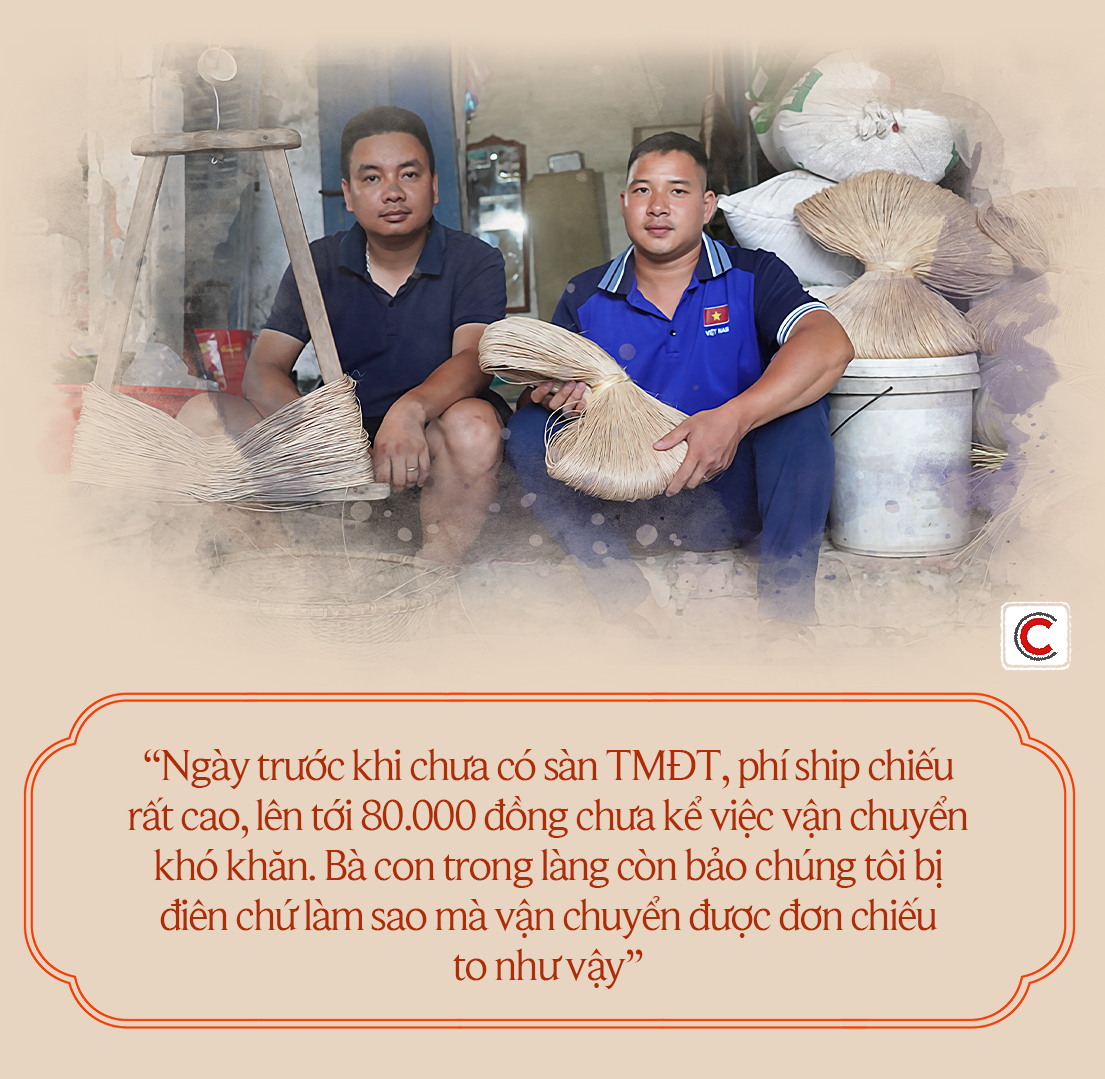
How did you convince the villagers to participate in promoting the products online?
Initially, getting the villagers, especially the elders, to appear in videos or engage with online promotion was challenging. They were camera-shy and believed that traditional crafts like mat-weaving didn’t require modern promotional methods. When I approached them to film the mat-making process, many refused, preferring to share stories rather than appear on camera.
Only the weaving process is mechanized; other steps like binding and collecting the mats are done manually. We use a three-wheeled vehicle to transport the mats to the villagers’ homes for these tasks, highlighting their crucial role in both production and promotional imagery.
I patiently explained that online promotion not only helps with sales but also elevates the reputation of the village’s craft. I showed them videos on TikTok where young customers discovered “Than Vui Straw Mats” and placed orders. Gradually, they understood that online promotion brought not just income but also recognition for the craft, attracting the younger generation. Now, many villagers are willing to cooperate and even take pride in seeing their products featured online.
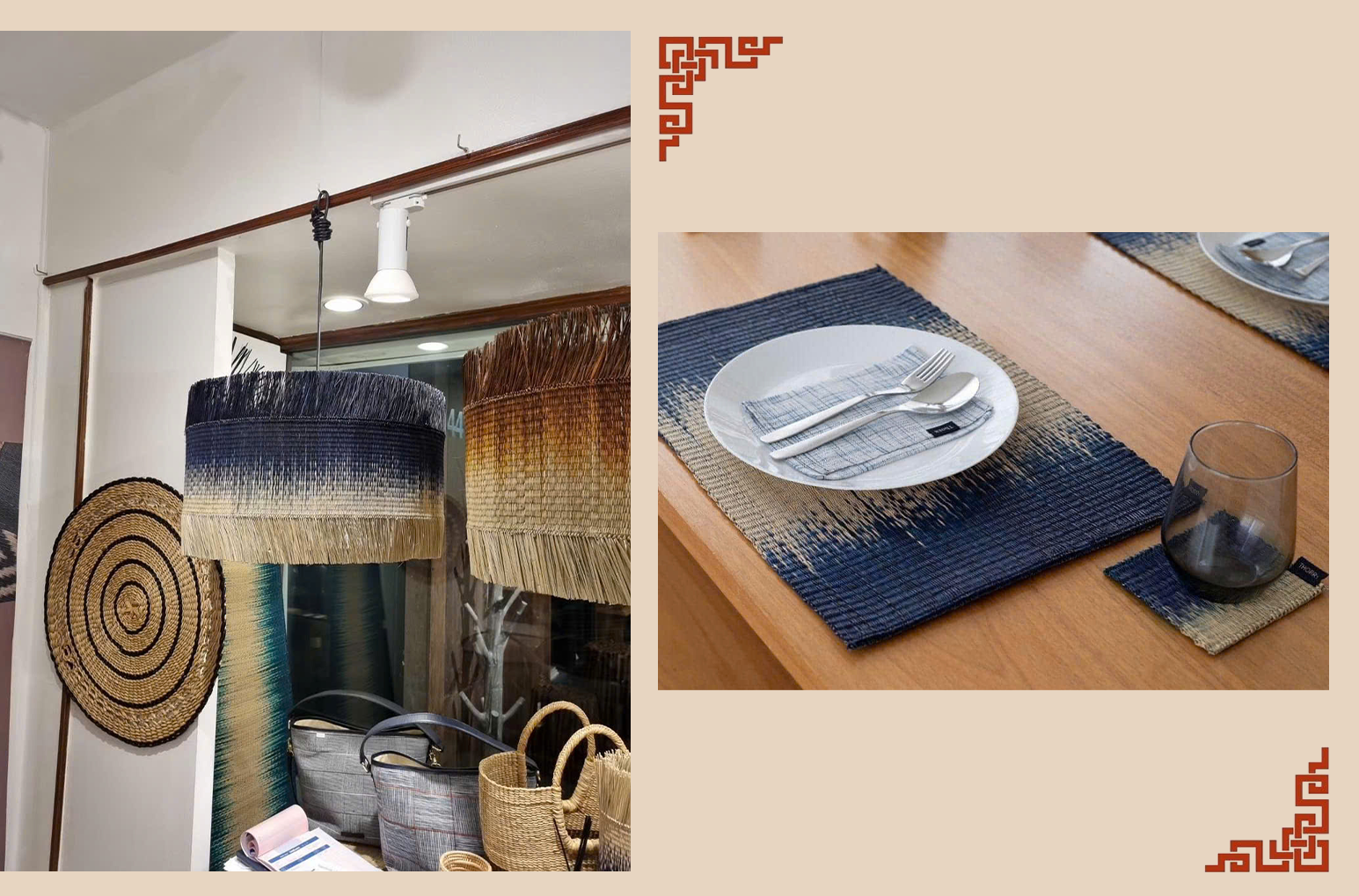
How has the application of digital technology transformed your traditional business model?
Digital technology, especially e-commerce, has revolutionized the way we do business. Previously, our mats were sold solely through traditional distribution channels, creating a disconnect between producers and end consumers. This dynamic allowed intermediaries to inflate prices, making our products less competitive. For example, a pair of mats worth VND 200,000 could be sold for VND 700,000 by distributors, ultimately hurting the customers.
Additionally, the use of machinery in the weaving process has significantly increased our productivity. While we still opt for hand-weaving for important and intricate orders, machines can produce 12 pairs of mats per day compared to the nearly two days it takes two artisans to complete a single pair by hand.
Selling on platforms like TikTok and Shopee has enabled us to engage directly with our customers. I can listen to their feedback and understand their preferences for designs and quality. For instance, if customers complain about the thickness of the mats, I can immediately make adjustments in our workshop. This level of responsiveness is impossible with traditional sales channels, as feedback must pass through multiple intermediaries.
Digital technology has also played a pivotal role in building our brand. In the past, our mats lacked a distinct identity. Now, through TikTok videos, customers can witness the entire process, from selecting the straw to weaving, binding, and printing patterns. This transparency fosters trust, as they recognize the craftsmanship and natural materials involved. A single video showcasing the mat-drying process or pattern printing can attract thousands of views, solidifying the “Than Vui” brand in the minds of viewers.
Online sales also allow us to experiment with new products. I can upload samples on TikTok to gauge customer reactions before committing to large-scale production. This approach reduces risks and enables us to respond more swiftly to market trends. While we maintain the handmade aspects of binding and finishing, we’ve incorporated machine weaving to meet the demands of large orders from e-commerce platforms.
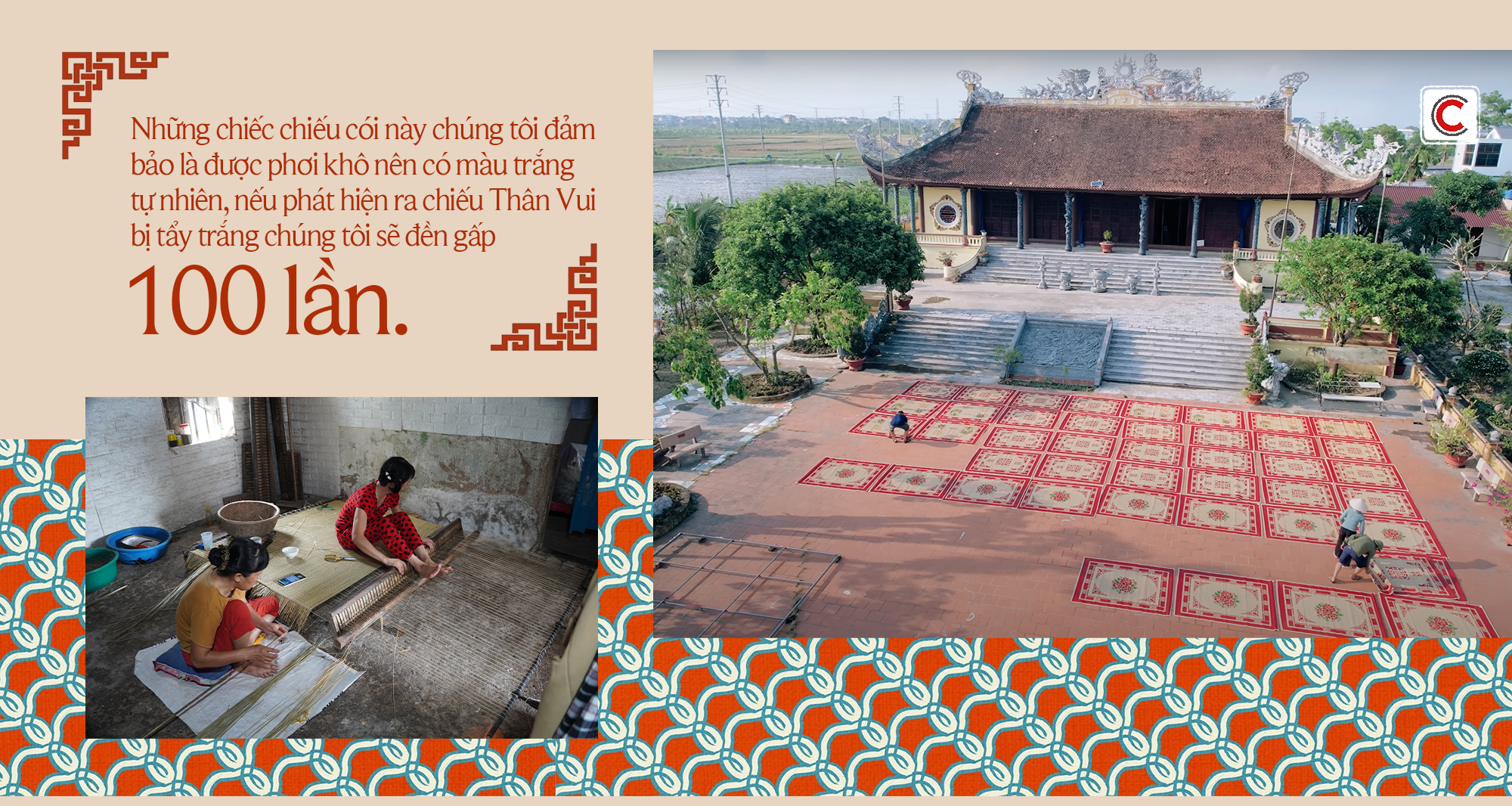
What are your plans for the future to continue preserving and developing the traditional straw mat weaving craft?
We are committed to preserving the traditional craft by retaining the handmade processes of straw selection, drying, binding, and weaving. These steps are the core of our business and what sets us apart. Simultaneously, I aim to shift perceptions, especially among the younger generation, about straw mats. Many associate them with mold, but I explain that natural straw, like fresh produce, is susceptible to mold if not properly cared for. We are exploring the creation of uncolored mats to meet the demand for natural, safe products.
(The patterned straw mats remain popular for decorative and spiritual purposes. Recently, our mats were featured during the reception for the Thai Prime Minister.)
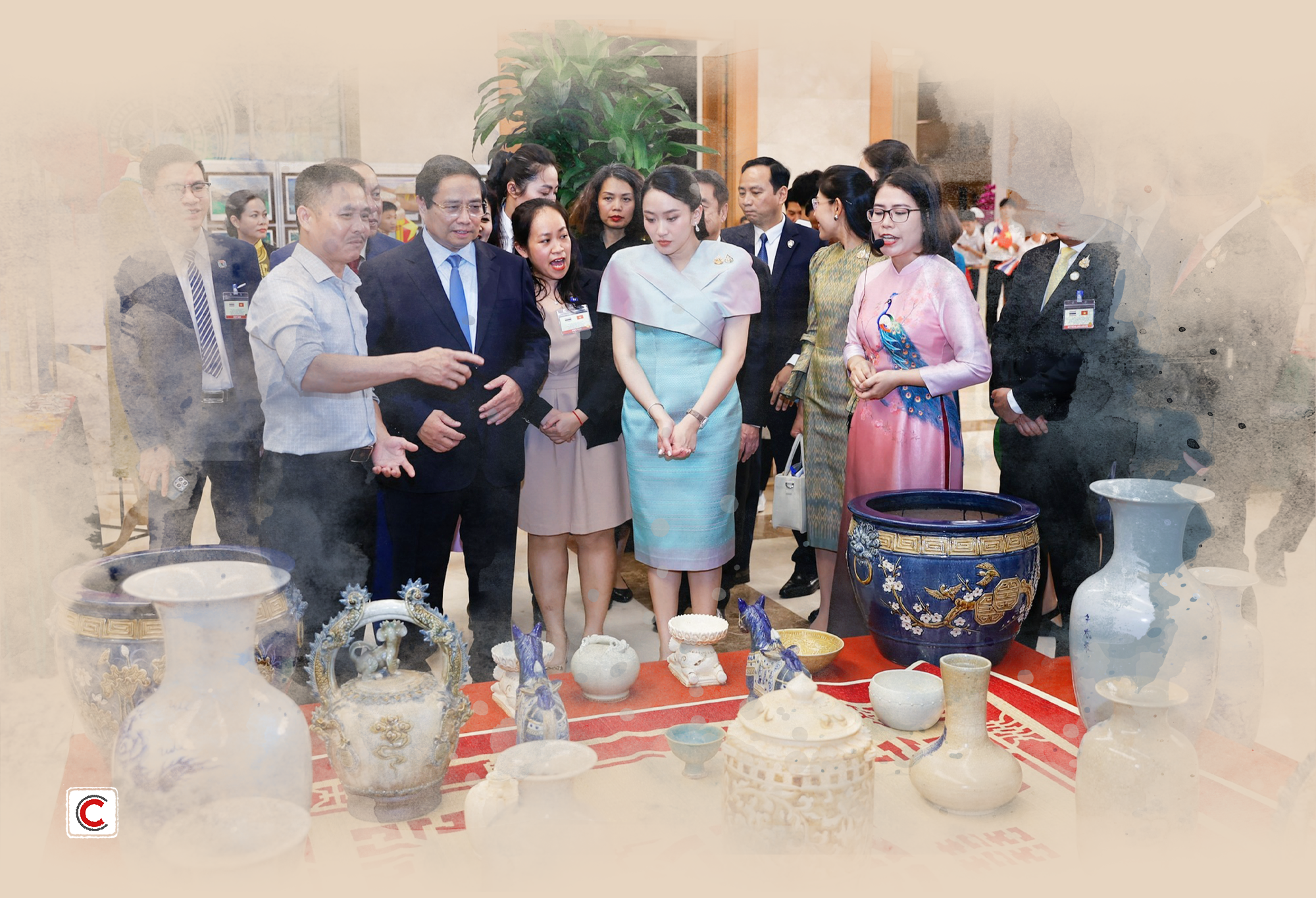
In terms of development, we plan to diversify our product range. In addition to mats, we can create wall hangings and decorative items from straw to appeal to younger consumers. We are also promoting patterned mats for their aesthetic value and their role in spiritual ceremonies like weddings. I am currently researching safe, natural dyes to prevent color fading during use.
Regarding market expansion, we aim to venture into exports. Foreign entities have already expressed interest in Vietnamese straw mats. For instance, we crafted a 14-meter-long mat for Den Hung, priced at VND 35 million, which was machine-woven but hand-finished. I aspire to introduce our straw mats to international markets while retaining their handmade essence.
To support the village craft, I continue to encourage villagers to participate in promotions. We combine machine and hand weaving in our workshops, but crucial steps like binding and pattern printing are always done by hand. In addition to growing and harvesting straw in Thai Binh, we source it from Thanh Hoa and the Mekong Delta, distributing it to villagers for the various manual processes. This ensures steady employment and preserves the craft within the community.
Lastly, I want to promote the cultural significance of straw mats. They are more than just a product; they symbolize warmth and family gatherings in Vietnamese culture. During the Tet holiday, many families purchase mats for making traditional cakes and sitting together in conversation. Through media and events, I hope to increase the appreciation for straw mats among the Vietnamese, especially the younger generation.
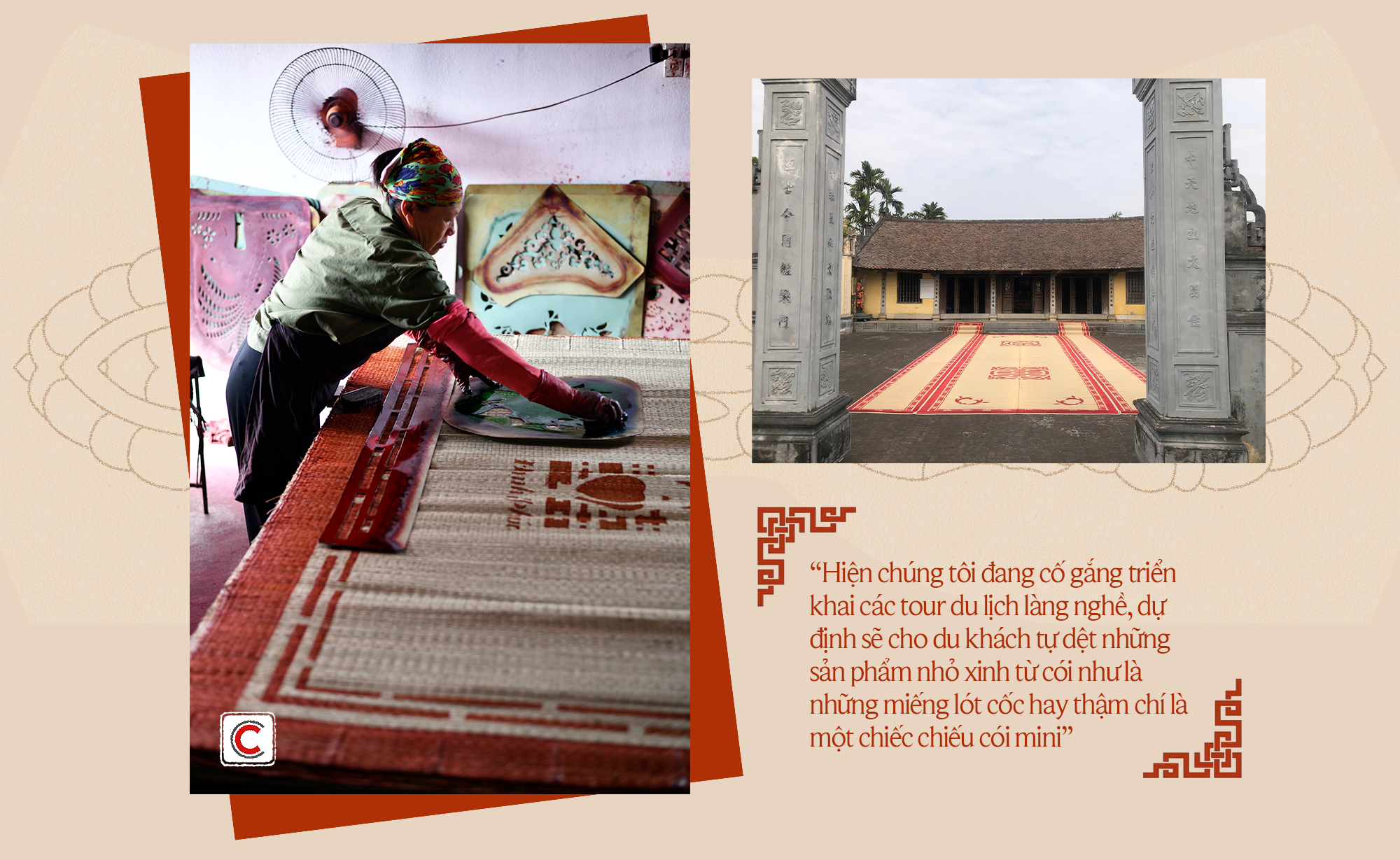
“Empowering Vietnamese Enterprises: Marching Alongside the Nation’s Private Sector Development”
Aiming for the Government’s targeted GDP growth rate of 8%, Resolution No. 68-NQ/TW positions the private sector as the central driving force of the economy. Masan (HoSE: MSN) is expected to be one of the exemplary consumer-retail businesses, actualizing this orientation through its strategy of developing domestic value chains.
“A Bright Start: PJICO’s Impressive Performance in Q1”
In the recently released Q1 2025 financial report, Petrolimex Insurance Joint-Stock Corporation (PJICO, code: PGI) recorded a total revenue of VND 1,343 billion, a 3.3% increase, amounting to 26% of the yearly plan. The original insurance revenue reached VND 1,114 billion, a slight 1.3% uptick compared to the same period in 2024.
“FinanceAsia: SHB is Vietnam’s ‘Best Bank for Public Sector Clients’ in 2025”
Within the prestigious FinanceAsia Awards 2025, the Saigon-Hanoi Commercial Joint Stock Bank (SHB) has been recognized as the “Best Bank for Public Sector Clients” in Vietnam. This esteemed accolade celebrates SHB’s unwavering dedication to offering comprehensive and efficient financial solutions to public sector entities, standing as a testament to their commitment to fostering the country’s sustainable development.
“PM Orders Comprehensive Audit of Bank Accounts and Phone Records”
“The Prime Minister has directed the Ministry of Public Security to collaborate with the Ministry of Science and Technology, the State Bank of Vietnam, and relevant agencies and businesses to initiate a comprehensive campaign. This campaign entails a thorough review of bank accounts and phone SIM card registrations to strengthen state management and prevent the rising tide of online fraud and scams. This proactive step underscores the government’s commitment to safeguarding its citizens in the digital arena.”

